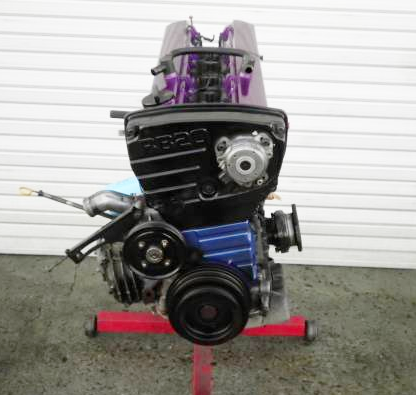Carnatic Music Notations Download Games

Nov 17, 2007 - Create Carnatic Music notations online with this new sofware. Layout and Tala in right order (i added the restriction only late in the game).
By Aparna Sridhar A Carnatic vocalist visiting Coimbatore is shocked to find that as she sings, advertising and marketing slogans of the sponsors are being scrolled on screens behind her. She gets up and walks out A generation’s old music festival in Bengaluru regretfully tells aspiring young musicians. “Maybe you are really good, but there are many like you for the junior slots.
Difficult to choose. But if you can bring a sponsor we will give you a slot.” A young violinist in Hyderabad, winner of several youth awards, is finally given a solo concert — for a sum of Rs 500. Then he is told he has to pay any accompanists he brings in himself. Prestigious music festivals in Bengaluru, with varying government and private sponsorship, field top artistes after paying them lakhs — often to poorly attended halls. For any art form to flourish, the system has to promote and sustain high levels of quality at its apex — both intrinsic quality and quality of presentation, appeal, and access and engagement, in order to thrive.
The platforms matter, the spaces matter, the impresarios matter. Today the spaces, the context for Indian, have become jaded and people no longer see the spaces where is being presented as places where they can go to and enjoy an evening of good music. And a few “established” names notwithstanding, they cannot trust it to give them the sense that they are listening to the best in the industry today. (Amjad Ali Khan) Add linguistic and regional politics to the mix, and things get distressing.
 A much-feted, top vocalist from Chennai was invited to perform in Bengaluru but told to stick only to Purandaradasa krithis (in Kannada). While he was happy to sing Dasa krithis, he demurred against the “only” dictum as his strength was singing Carnatic compositions in Tamil. He did not come to the festival. When curators abdicate their responsibility, there is a loss in the art form.
A much-feted, top vocalist from Chennai was invited to perform in Bengaluru but told to stick only to Purandaradasa krithis (in Kannada). While he was happy to sing Dasa krithis, he demurred against the “only” dictum as his strength was singing Carnatic compositions in Tamil. He did not come to the festival. When curators abdicate their responsibility, there is a loss in the art form.
In the past, musicians would quake in front of a music critic like PV Subramaniam (affectionately called Subbudu). While one may talk about the tyranny of a curator or a single institution holding sway over quality, the opposite is equally problematic.
The benchmarks for quality are no longer there. (The Universal Notes Project) Both listeners and artistes, young and old, are disenchanted. There is no sense of that excitement you get when you are listening to artistes on the rise, who are doing well and are the future. Classical music today is an art form without a story. It needs to tell its old stories but also tell new ones. The old story of mathematical execution of raga phrases and the old story of bhakti has to be told in a fresh and engaging way. Take a look at the Carnatic music scene today, and it is not without youngsters, many passionate about the art form and its great compositions.
But they are few and far between, and they have not been able to draw in enough young listeners into the fold. It is the “seniors” who are vocal in their appreciation.
(Rajan & Sajan) System of selection The most popular venues and festivals have invested time and resources to curating the artistes list and constantly tweaking the quality of the whole experience from the audience’s perspective. Sandeep Virdi, artistic director of the Darbar Festival, UK, says there are things that traditional organisers ignore at their own peril.
“The feel and touch of the marketing materials, the choice of venues for performances, the production values of the performance — staging, lighting and vitally the sound of the music, all go a long way in making an evening special,” he stresses. ( Deepti Navaratna, Executive Director, ) Sabha leaders and their corporate sponsors are gatekeepers, but this partnership can fail when the primary purpose becomes a notional “success” and commercial viability rather than delivering a rich and varied musical experience to the people.
“Most Sabhas are a PR activity,” laments a senior All India Radio (AIR) official and music lover on condition of anonymity. “If they are doing this out of passion for music, they would have had a rigorous system of curation and selection, and not depend on external criteria, popularity etc.” Virdi says that corporate sponsors’ primary purpose is to make profits. “I have observed major festivals changing their curation to more popular and fusion type concerts to ensure that they get a full house. This will eventually lead to a decline in the finest authentic Indian classical music and all the uniqueness of this sublime genre — and I think this is already happening unfortunately.” Morning and evening concerts against the backdrop of the Jakkur lake in Bengaluru, without artificial lights or amplifiers, is perhaps the direction where music will go in the future. Or under a big banyan tree at the where the strains of ragas actually resonate and keep beat with nature, as our music is supposed to do. Deepti Navaratna, executive director of the Indira Gandhi National Council for Arts (IGNCA), Southern Region says presenters could think creatively about curating new music engagement experiences with youngsters, away from conventional concert experiences, for both performer and listener.